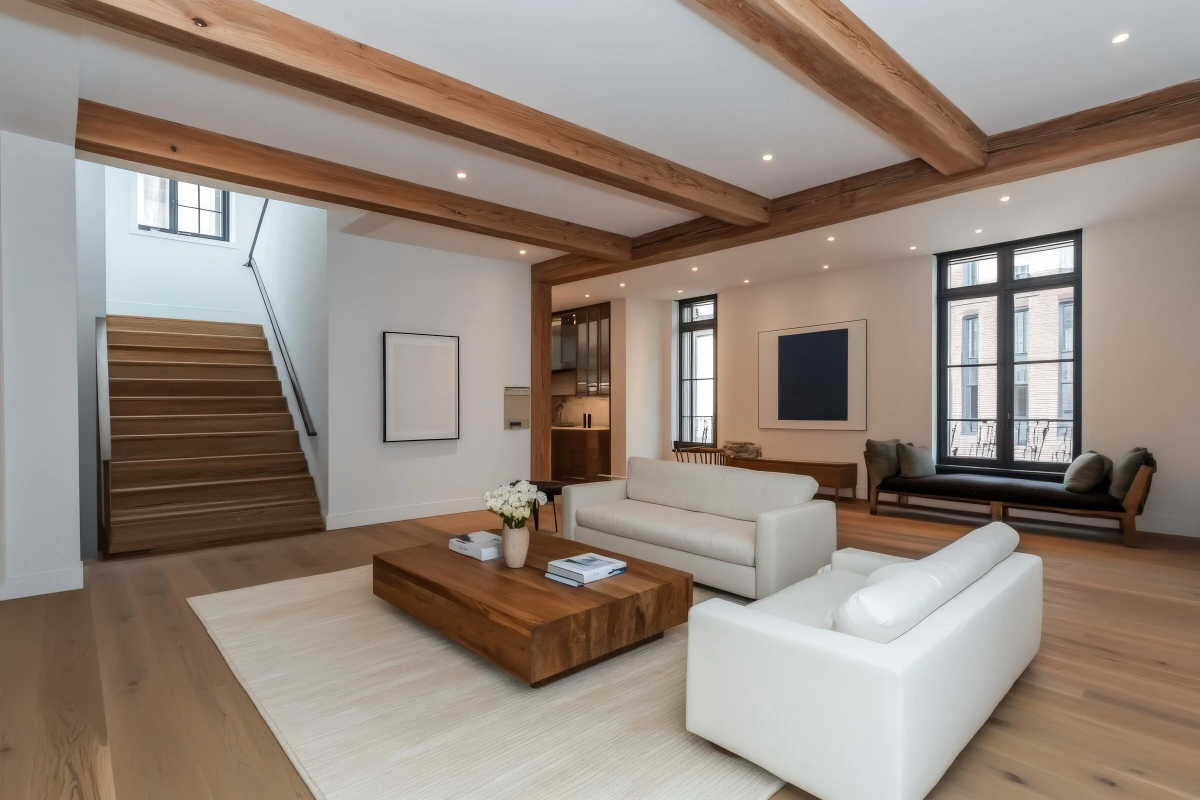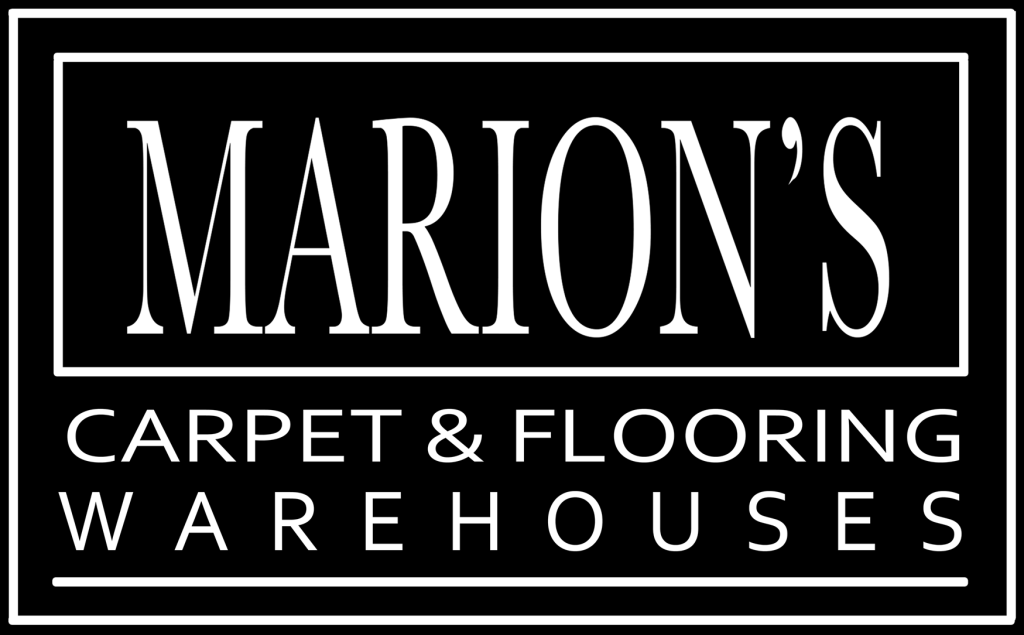Marion's Blog > Which Hardwood Flooring Is the Most Durable?
Which Hardwood Flooring Is the Most Durable?
Thursday, April 17, 2025

When investing in hardwood flooring for your Pacific Northwest home, durability should be one of your top considerations. With Portland's active lifestyles, frequent rainfall, and homes filled with kids, pets, and outdoor enthusiasts, your floors need to withstand significant wear and tear. The good news is that today's market offers numerous options that combine beauty with exceptional durability.
Understanding hardwood flooring types
Before diving into specific wood species, it's important to understand the fundamental differences between the main types of wood flooring available:
Solid wood flooring
As the name suggests, solid wood flooring consists of single pieces of hardwood throughout:
- Typically 3/4 inch thick
- Can be sanded and refinished multiple times
- Susceptible to expansion and contraction with humidity changes
- Not recommended for below-grade installations (basements)
- Usually more expensive than engineered options
Real wood flooring made from solid hardwood has been the traditional choice for centuries, valued for its authenticity and longevity.
Engineered wood flooring
Engineered wood flooring offers a modern alternative with several advantages:
- Consists of a real wood veneer bonded to multiple layers of backing material
- More dimensionally stable than solid wood in humidity fluctuations
- Can be installed in basements and over concrete subfloors
- Limited refinishing potential depending on wear layer thickness
- Generally more affordable than solid hardwood
The core construction of engineered wood flooring provides structural stability while maintaining the beauty of real wood on the surface.
Most durable wood species for flooring
When evaluating hardwood species for durability, the Janka hardness scale provides a useful metric. This scale measures the force required to embed a steel ball into the wood, with higher numbers indicating greater hardness and dent resistance:
Oak flooring: the reliable standard
With a Janka rating between 1,290 (red oak) and 1,360 (white oak), oak offers an excellent balance of durability and cost:
- White oak is slightly harder and more water-resistant than red oak
- Features distinctive grain patterns that help hide minor scratches
- Readily accepts stains, allowing for customized looks
- Widely available, making future repairs easier
- Typically more affordable than exotic hardwoods
Oak flooring has been the most popular choice in American homes for generations, proving its durability and timeless appeal.
Hickory: domestic hardwood champion
With a Janka rating of 1,820, hickory stands as North America's hardest common wood species:
- Exceptional resistance to dents and wear
- Distinctive contrasting color variations within planks
- Rustic character works well in Craftsman, farmhouse, and traditional homes
- Slightly more expensive than oak but still reasonably priced
- Challenging to work with during installation due to hardness
Hickory's remarkable hardness makes it an excellent choice for high-traffic areas and homes with active children or large dogs.
Maple: clean aesthetic with high durability
With a Janka rating of 1,450, maple offers excellent durability with a more uniform appearance:
- Light color with subtle grain patterns
- Contemporary, clean aesthetic
- Highly resistant to wear but can show scratches more visibly due to its light color
- More difficult to stain evenly than oak
- Popular in modern and Scandinavian-inspired designs
Maple flooring combines durability with a bright, airy appearance that complements the contemporary architecture found throughout Portland's newer neighborhoods.
Brazilian hardwoods: exotic durability champions
Several Brazilian species offer exceptional hardness:
- Brazilian cherry (Janka 2,350)
- Brazilian walnut/Ipe (Janka 3,680)
- Brazilian tiger mahogany (Janka 2,200)
These exotic woods provide:
- Unmatched hardness and wear resistance
- Rich, distinctive coloration
- Premium appearance with unique character
- Higher cost than domestic species
- Potential sustainability concerns (look for FSC certification)
These exotic options represent the most durable real wood flooring options available, though they come with higher price tags and installation challenges.
Factors beyond species that affect durability
The wood species is just one aspect of hardwood flooring durability. Other important factors include:
Finish quality
The type and quality of finish applied to the wood significantly impacts its resistance to daily wear:
- Aluminum oxide finishes offer exceptional durability
- UV-cured urethane provides excellent scratch protection
- Oil-based polyurethane creates a traditional amber glow
- Water-based polyurethane maintains the wood's natural color
- Site-finished floors typically allow for a thicker wear layer than pre-finished options
Most modern pre-finished solid wood flooring and engineered wood flooring comes with factory-applied finishes that far exceed the durability of traditional site-applied finishes.
Wood cut and grain pattern
How the wood is cut from the log affects both appearance and stability:
- Quarter-sawn boards (cut perpendicular to growth rings) offer superior stability
- Plain-sawn boards (cut tangential to growth rings) show more pronounced grain patterns
- Rift-sawn boards minimize seasonal movement and provide straight grain appearance
Quarter-sawn oak flooring, though more expensive, offers exceptional dimensional stability that contributes to long-term durability.
Board width considerations
The width of hardwood planks affects both aesthetics and performance:
- Narrow boards (2¼"-3") experience less expansion and contraction
- Medium boards (3"-5") balance stability with contemporary styling
- Wide planks (5"+) create dramatic visuals but may experience more seasonal movement
Particularly in the variable climate of the Pacific Northwest, board width can be an important consideration for long-term performance.
Engineered vs. solid wood: durability comparison
When comparing engineered wood flooring to solid wood flooring for durability:
Engineered wood advantages
- Better stability in humid environments (basements, kitchens)
- Can be installed over concrete or radiant heat systems
- Less susceptible to cupping and warping
- Some high-end products feature extremely durable wear layers
- Generally more affordable than solid hardwood
Solid wood advantages
- Can be refinished multiple times (extending lifespan by decades)
- Typically thicker wear layer than engineered options
- Often allows for site-finishing, which creates a more uniform seal
- Traditional installation methods proven over centuries
- Generally higher resale value and prestige
The durability winner depends on your specific circumstances, including installation location, subfloor type, and expected length of ownership.
Special durability considerations for Portland homes
Living in the Pacific Northwest presents unique challenges for hardwood flooring:
Moisture management
Our rainy climate means homes often have higher humidity levels:
- Consider engineered wood for areas with higher moisture concerns
- White oak offers better moisture resistance than red oak
- Ensure proper acclimation before installation
- Maintain consistent indoor humidity levels (35-55%)
Installation over concrete slabs
Many Portland-area homes have concrete slab foundations:
- Solid hardwood generally isn't recommended directly over concrete
- Engineered wood provides a better solution for these installations
- Proper moisture barriers are essential regardless of wood type
- Professional installation is particularly important for these scenarios
Radiant heating compatibility
With energy efficiency becoming increasingly important:
- Engineered wood typically performs better with radiant heat
- Quartersawn woods experience less movement with temperature changes
- Certain species (cherry, maple, ash) perform better with radiant systems
- Narrower boards minimize expansion gaps
Maintenance practices for maximum durability
Even the most durable hardwood flooring requires proper maintenance:
Regular cleaning
- Sweep or vacuum with a soft brush attachment regularly
- Use only manufacturer-recommended cleaning products
- Avoid excess water or steam cleaners on any wood flooring
- Clean spills promptly to prevent staining or water damage
Preventative measures
- Use felt pads under furniture legs
- Place mats at exterior doors to catch dirt and moisture
- Consider removing shoes in the house
- Use protective mats under rolling office chairs
- Trim pet nails regularly to minimize scratching
Refinishing schedule
- Apply maintenance coats before wear reaches raw wood
- Consider screen and recoat every 3-5 years in high-traffic areas
- Complete sand and refinish when surface damage is significant
- Professional refinishing extends floor life significantly
Making the best hardwood flooring choice
Selecting the most durable hardwood flooring for your home requires balancing several factors:
- Consider your household activity level (children, pets, entertaining)
- Evaluate specific room functions and traffic patterns
- Think about your tolerance for patina and character marks
- Balance budget constraints with long-term durability needs
- Consider the architectural style of your home
- Factor in installation location (above/below grade, subfloor type)
- Weigh the importance of refinishing potential
Remember that even the most durable floors will develop some character over time—many homeowners find that this patina adds to the authentic beauty of real wood flooring.
Expert guidance for your hardwood flooring investment in Portland & Wilsonville, OR
Ready to discover the perfect balance of beauty and durability for your home? Marion's Carpet & Flooring Warehouses offers the region's finest selection of hardwood flooring! Our flooring experts serve Portland, Oregon City, Wilsonville, Beaverton, Lake Oswego, Tigard, Sherwood, Newberg, Hillsboro, OR, and Vancouver, WA with personalized recommendations based on your specific needs and lifestyle. Visit our showrooms in Portland and Wilsonville, OR to experience our extensive collection of solid wood and engineered wood flooring options, or contact us today to schedule a consultation with our hardwood specialists.
